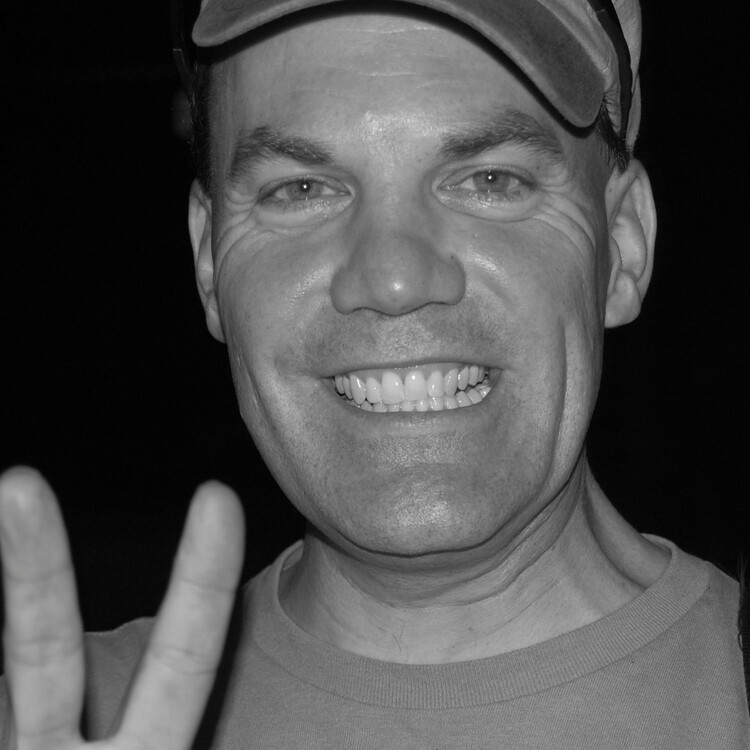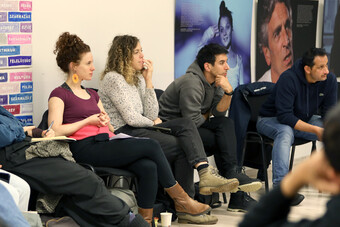Critics’ Love for Sale
Why Journalism’s Demise Is Bad for Theater
While I was the theater critic for The Denver Post, I never quite understood the malicious glee so many seemed to be taking in the irreversible downward slide of the corporate newspaper industry, which went into a free-fall along with the global economy in 2008. But the end had really begun by our own hand back in 1996, when newspapers like ours started launching online web sites and giving their content away for free. (For the record: Information-gathering is not free.)
Careful what you wish for. Because newspaper staffs are shrinking as fast as news holes, and professional full-time theater critics are as endangered as the Dodo Bird. We are left with a new generation of civilian internet writers who have no economic incentive whatever to be tough or to take a contrary stand. As a result, the ethics of Internet theater criticism are getting ickier by the day.
We’re talking critics being paid to write reviews by the theater companies they cover. I’m not kidding: The smallest theater companies in Denver, now without much of a prayer of getting the attention of one of the few remaining, thinly stretched employed newspaper critics, have formed a club that offers dues-paying member companies the opportunity to have a local freelance journalist it retains to review their production—for fifty dollars a pop. Not much likelihood of a pan there. Meanwhile, invited Yelp.com citizen reviewers now often sit alongside working journalists on press nights for the Denver Center's big Broadway touring productions.
The result: a sea of acidic sunshine...and bad grammar.
Critical response to art is no longer visceral and real; it's bought and sold. We are witnessing the rapid erosion in trustworthy discourse from trained, consistent voices to help steer readers toward (subjectively determined) glorious theater, and away from (subjectively determined) chaff.
They say the audience completes the artistic process. Well, the critic is part of that audience. While the artist’s job is to “hold the mirror up to nature,” it is the critic’s sacred responsibility to hold the mirror up to the artists. But a mirror in which every reviewer sees only the perfect face of Snow White and never a warty old witch is a mirror cracked.
Critical response to art is no longer visceral and real; it's bought and sold. We are witnessing the rapid erosion in trustworthy discourse...
When it comes to arts criticism, the Internet was supposed to be the great equalizer. It would take the power away from those unqualified few lucky newspaper hacks like me, and put it into the hands of “the people.” And that has happened. The mighty have fallen, been reduced in scope and significance by the economy and their own editors, or, in my case, simply stepped aside. As a result, I was the last full-time, dedicated professional theater critic in Denver. There are now more than two dozen part-time or split-beat newspaper critics, along with freelancers and blogger critics who write to widely varying degrees of purpose, proliferation, and point. They are all well intentioned. But only a very few regularly hold the theater community to a higher artistic standard.
If “the media” is to blame for any given problem (and when is it not?), well, then, we’re all part of this problem. Because I define the media as anyone with distribution. That means anyone with a cushy staff job at a daily newspaper, anyone with a blog, or anyone with a Facebook or Twitter account. That means you, posting a status update saying, “This is the most moving piece of theater you will see in your life!”
Two things the new generation of self-starting blogger critics have in common: Almost none of them are paid anything close to gas money to write about theater. And, perhaps coincidentally—perhaps not—what they write is almost always insufferably, uselessly positive. Some do it for love. Some just want to cheerlead for the community, and there’s nothing inherently wrong with that. Some hope it leads to bigger and better-paid writing gigs. But where are those gigs, exactly? Who is paying anyone a living wage to write about theater anywhere? No one, in part because there is no demand from consumers that “The Man” do so.
Speaking of, who is “The Man” anymore, anyway? The Examiner? The Huffington Post? Those are newfangled networks of web sites that publish articles by citizen journalists who are paid next to nothing. These companies make most of their money by aggregating content that someone else paid to produce. But because some content, like theater, is inescapably local, some things you have to bite the bullet and produce yourself.
The Examiner, for one, pays its local writers by a system that encourages them to both write, and then aggressively market their own work on the company’s behalf. Two birds, one stone and all. Because you don’t get paid if you don’t get the hits. After reaching a threshold, you get paid by the click. And not much per click. For a theater writer, we’re talking maybe twenty dollars a month. The more you circulate your links on Facebook, Twitter, Pinterest and the like, the more likely you are to garner enough clicks to treat yourself to a Burrito Supreme on your way from a theater it may have cost you twenty dollars to drive to.
That creates no incentive for a writer to say anything that is challenging, hard-hitting or even (egad!) outright negative. Because no one you are writing about will then participate in the proliferation of your link. Now, if you tell your readers to “run to see this show!!!” you will soon pop up in news feeds all over Facebook. And then, heck, why stop at a Burrito Supreme? Order yourself a full combo.
Here are the real consequences when the print media goes away and is replaced by all things electronic: First, there is no sense of where to go. There is no single source where everyone turns for a consensus of credible opinion. That, in turn, creates the second problem. “The opinions you do find are from amateur journalists who are not trained in how to observe, absorb, process or write about what they are responding to,” said Steve Wilson, who directs plays for Denver’s handicapped Phamaly Theatre Company. “Or worse, arts organizations themselves are writing or blogging or finding partisan people to do it for them, creating the slanted, hollow, politicized journalism that has diminished media since the rise of highly partisan talk radio.”
I think what’s really being lost is why and for whom theater critics are supposed to be writing in the first place. Not for the edification of the artist’s ego, but to help busy, beleaguered readers make difficult economic decisions about how to best spend their limited discretionary income. And that means being tough when necessary. Advocacy reviewers do no one any favors when they champion work that is not championship work. Not their readers. Not your company. Certainly not the writer’s own reputation.
Speaking for my own kind, the proliferation of unpaid novice theater writers has left no room—or presumed need—for anyone to hire experienced arts journalists. And when there is no employment in it, legit journalists are forced to scatter and find alternate ways of making a living wage in some other field.
If you have been following my theater coverage at CultureWest.Org, you would not be the first to call me a hypocrite. Because since August, I have very much become part of the problem. I am creating all kinds of newfangled theater content, and, yes, I am giving it away for free. Because no amount of entrepreneurship on my part would ever create a livable wage from it. The market is not big enough for that. No, I need a job. By going about my business covering theater as if I have an employer (when I don’t), I am contributing to the growing dis-incentive for anyone to hire me to do for pay what I am already amply doing for free.
But there is method to my madness. The day I stop producing content is the day I stop being relevant to the ongoing conversation about culture in Denver. In that event, if a real job ever does come around, I’m just the guy who “used to do it.” I choose instead to stay in the game. So I still do it, every day.
I just chose to stop writing theater reviews altogether. Because if I am ever going to take up that sacred responsibility again, one that includes holding your community to a consistent, higher standard of excellence, and one that invites all of the angry phone calls and voice mails and sleepless nights that come with it—you can be damn sure I am going to have to be getting paid by someone to do it.













Comments
The article is just the start of the conversation—we want to know what you think about this subject, too! HowlRound is a space for knowledge-sharing, and we welcome spirited, thoughtful, and on-topic dialogue. Find our full comments policy here
"Two things the new generation of self-starting blogger critics have in common: Almost none of them are paid anything close to gas money to write about theater." Guess what? Neither are professionals. That's why I got out. It was one of the best decisions I ever made.
Dear HowlRound readers, I took a lot of anticipated guff from unpaid internet theater critics from around the world who took umbrage with my essay yesterday, and all I can say is ... ahh, feels like old times, hah. These were mostly from no doubt dedicated, competent internet bloggers trying to make a go of it online in cities other than Denver, so these are writers I've not previously read or followed. I was asked to assess the situation in Denver, where there is a predominance of positive and often compromised theater blogging, so please don't take blanket offense if you are bucking the trend and producing intelligent, tough criticism in other cities. Good on you. I hope to perhaps one day rejoin you - after I figure out how to pay next month's mortgage and $467 health-insurance premium.
Because I'm now a job-seeker (meaning: a dude with a lot of time on my hands), here is my response to some of the response:
Whether you write 10 reviews or a year or 160 (closer to my former output), you must at some point bite the bullet and take a production to task, or else your readers have no idea what your smell test really is. And without that, you foster the notion that everything by everyone is just great. It's like the star system, which I hated. But it served its purpose. If everything gets 3 to 4 stars, then what's the purpose of having a star system at all? At some point, your readers have to know what constitutes a one-star show in your book, so that they have some basis for comparison.
Unpaid internet reviewers who say they pick and choose to write only about shows they honestly feel are worthy of their coverage are being disingenuous, because 1) It stands to reason they might then hit a bad streak where they see three or four shows in a row they don't write about when, in reality, they are much more likely to find some reason to champion a mediocre show than not write about it at all; and 2) They are abdicating a fundamental purpose of criticism, and that is to sometimes say things (in cogent, respectful ways) that, in the end, they really just don't have the stomach to say because they might run into someone from the creative team in Aisle 8 of the local grocery store. Or worse, at their next audition. (Because these days, nearly every new internet critic is also a producer, actor or director with ethical conflicts.)
But readers absolutely benefit from knowing what shows are out there that you, as a critic, would not otherwise spend your time or money to see. Be tough. Be honest. It's just one opinion. The choice to go or not go is then your readers' to make. Just as it is the readers' choice whether to put any stock in your
reviews.
I never liked being tough. I lost sleep over assigning fewer than 2 stars to anything. But I did it. And when I did, I was being honest, and that was necessary. Yes, I tried to see as many shows as possible. I would often take in an obscure show by a tiny amateur company no one would have expected The Denver Post to review in the HOPE that I could be the one to bring exposure to a work few readers ever would have known about otherwise.
But let's say the tiny obscure show is a sophomoric wreck. When reviewing those shows would have served no purpose but to hurt the tiny obscure company, yes, I would take compassionate passes -- because to trash a company in print that no one has ever heard of also serves little purpose.
But there must be a line. Readers of The Denver Post expect the big-league shows to be reviewed. If your honest and visceral response to a production by, say, the Denver Center Theatre Company, the Arvada Center or Curious Theatre Company is one of disdain or dissatisfaction, you owe it to your readers to say so. To take a pass on writing about the most-attended, most expensive plays would be an abdication of your fundamental responsibility to your readers, even if it is a self-imposed responsibility. That would be like the Broncos beat writer taking a pass on writing about Sunday's football game just because the Broncos got blown out. How are the readers supposed to know whether you saw a certain play and gave it a pass because it stinks, or you didn't write about it because you simply took the weekend off? Either way, you have left your readers in the dark.
The larger purpose of this particular essay was to point out a new and troubling trend in internet
criticism: That not only is there a predominance of glowing, positive reviews now, but as a reader, you don't know whether the writer had an economic incentive to be positive. Being nice all the time seems like it would be good for everyone, but, in the end, it's good for no one.
And, the perfunctory slam against talk radio finds a way. I'm interested to hear more about the causal link between, "the rise of highly partisan talk radio" and "diminished media," further described as "...slanted, hollow, politicized journalism." Many questions arise. How is an apparent form of successful media linked to the failure of another? Am I "hollow" if I listen to, or call into, an active form of Free Speech and Free Press? Which shows are acceptable? None? Given that the vast majority of thriving radio call-in shows are "conservative" in description, does that mean political disagreement equates to "slanted diminishment?" In other words, was Air America "hollow" and contributory to diminishment? Do modern "journalists" perceive that print media over the last 3 decades has been dying partly due to content, or merely technology? Why haven't radio shows died more precipitously? I know John (we're very close) and he asserts that the Denver Post was, and remains, a source of complete, fair, factual news content and editorial stances. Why does this matter? Isn't this about theater/culture? As we examine the craft of, the profession of, Journalism, and its recent history, it matters.
This is a much bigger can of whoop-ass that I'll take up with my brother at our next lunch :)
This is one of the better written pieces in this series, so I do want to state my appreciation for that. Still, with this piece Mr. Moore is basically bringing coal to Newcastle. In Boston we're not strangers to any of the issues he raises, in fact we've been living through them, and arguing over them, with considerably more passion than he musters. At this point, I believe there's only one theatre reviewer in Boston with a full-time paycheck and benefits, and no doubt given the precarious state of the field, he is not, shall we say, one to court controversy or blaze new paths (this is one aspect of the situation Mr. Moore fails to discuss - those critics with paychecks are now particularly careful to hang onto them, so print criticism has sunk well below the intellectual standards of the leading sites and blogs).
What's more, the attacks on criticism haven't just come from the private sector - in Boston, our leading university mounted a campaign (for over three years!) to silence writers who dared to rebuke its flagship stage company. At the same time, Internet campaigns have arisen to shun local reviewers over obviously false allegations of racism and sexism (I myself have been called racist, sexist, anti-Semitic, homophobic, anti-Native-American, and even anti-Irish - it's so much work keeping up this smorgasbord of bigotry, I just can't tell you!). So yes, criticism is under attack from all sides, even as all those sides also assure us that they truly long for honest, probing, challenging criticism - you know, the kind that will deliver them a rave.
It's disappointing, however, to see Mr. Moore end his piece with the statement (in essence), "I'm not writing real criticism again until someone pays me to do it." For there's the rub, eh? Everyone is waiting for someone to pay them to do the right thing, and they can't understand how the market could simply close off that option. There MUST be a way to get paid for doing the right thing!!! Just BECAUSE, okay?? But we note that alas, the alignment between getting paid and "doing the right thing" nevertheless remains elusive, despite our passionate belief that it must be out there.
I also have to add that it's a wee bit ironic Mr. Moore should criticize arts organizations in Denver for essentially commissioning their own reviews - because, of course, HowlRound itself, his host, is currently doing something very close to the same thing (see earlier posts from Polly Carl). And just btw, it seems another Boston site, which likes to style itself as a "cut above" the fray intellectually and morally, has likewise been accepting "underwriting" from local arts organizations. Of course everyone says there has been no "quid pro quo" demand for a positive review as the money changed hands. But is there ever? These things are simply understood. In the end, it seems, critics WILL find a way to get paid, one way or another.
I'll also add that I've been surprised by the lack of interest in simply writing criticism for the love of it from people who all claim they long desperately to be critics. It seems that if they did indeed have this burning passion it would find SOME kind of outlet! I myself manage to keep a day job humming along while writing generally four reviews every week (a schedule that no print critic in Boston ever equalled in my memory, just btw). And I don't really worry that I'm replacing print critic jobs because my writing is almost always at a level that newspapers never would have published anyway. My reviews are intended to disrupt and provoke, and are often "in depth" at a level unknown in print (I'm famous for multi-part series of up to 4000 words). Indeed, the time that I spent writing for a major print organ in town was the most frustrating of my career, as the editors there consistently blunted or dumbed down my output. And if I ever quit, I wonder who would carry out the obvious function I provide? The number of Boston actors who have made it up into the professional ranks with my help grows longer and longer every season. Beyond that, it's hard to imagine there would be any coherent critical opposition to the powers that be around here without me out front, leading the charge (such as it is). This, of course, means I have to bob and weave a lot; I have to buy my own tickets to some shows; I've even bought tickets for OTHER critics to attend shows when they came under attack, too. Because, in the end, I know better than to wait around for someone else to pay for that.
"The result: a sea of acidic sunshine...and bad grammar"
Well, I don't know about the U.S. but the convention in Britain is that there's a space after an ellipsis, and that the ellipsis generally performs the same function as a full stop. Therefore, the first letter of the following word should be capitalised...
Not the case, Andrew Haydon...in the U.S.
I quite strongly disagree with many of the points you've made here: although I agree with the general sentiment that the lack of full-time critics is bad for theatre, I don't think blogs or the internet are that terrible at all.
I started blogging about theatre - for free, and with no intentions of it ever being more than a hobby - four years ago. I wasn't overly positive in my reviews. In fact, I was often the only person writing negatively in my city. Or sometimes, I was the only person writing positively. Somewhere along the line, I started to write for other websites - for free - before I transitioned again to being a professional arts writer and critic, and working for free only for myself and my blog.
It's a hard slog, absolutely. I have been lucky enough to write for some incredible publications at what I consider to be good freelance rates; but it's certainly not full time. I have a fantastic relationship with many people in my local theatre community, and am often at opening nights as the blogger sitting next to the critic from the local print daily. I'm the blogger, though, who will write a considered, detailed, and, when necessary, critical 1000 words, while the writer at the daily will write a brief plot summary and if you should buy tickets in 100 words. I'm also the blogger who is fighting, constantly, for respect (and pay) of writers as professionals - and I have brought several artists who, yes, have been hurt by bad amateur reviews, over to fight that fight with me. Are there critics in this community I don't like? Yes. But they're being paid as frequently as they aren't.
If the theatre community thinks they're not getting coverage, they want coverage, and they want coverage from professional writers, and the local media is no longer supporting that, I don't actually have a problem with them collectively pooling resources to employ a voice they respect. Maybe this isn't the case at all, but I think they should be applauded for trying in an industry which, in many cases, has told critics they're replaceable with word of mouth on social media. And if this isn't the case, if they're just paying yes-men, then perhaps it's the responsibility of other critics in the community to talk to - and support - these writers. (I don't think $50 is enough for a review, but that's another question entirely.)
Bad critics exist in both paid and unpaid roles. And yes, it's going to be much, much harder to make a career from this from here on out. But that just means I have to be better; and it means I have to work hard in my community and provide what the artists need - good writing, not nice writing. Sometimes I'm paid for my work; sometimes I'm not. That doesn't change the value of the work, it just changes what I'm going to eat that week. And this free work is what gets me those jobs, with publications I have great respect for, and am building a career from. It's not a dis-incentive for anyone to pay me - but the reason that they do.
Hi everyone. The club is called "The SCEN3." It is open to Denver's "Tier III" arts organizations, meaning those with budgets under $1 million.
It charges $200 for you to have an individual organization
page on its web site at http://www.thescen3.org. And a one-time, $100 fee to be included in its calendar. It openly offers: "If you want to have a review, preview or feature
article written by some of Denver’s best journalists, it is $50." I
completely understand and applaud this self-starting response to small
companies losing media coverage - but I find its method of
implementation to be chilling in terms of ethics. I don't see how any
journalist could ever go along with writing a review of the very company
that's paying you for it, through a third party. I say that, and yet I
am also staring at my next $467 monthly health-insurance bill. So in
that way, I do. It all makes me sad. John Moore
Hear hear. Theater criticism talks about more than just whether the critic feels others ought to attend a certain show - at its best, it can contextualize a production, continuing the conversation about theater and its role (or lack thereof) in the broader context of a community's cultural, political, economic, and social life. The loss of strong critical voices as the newspaper industry collapses is unfortunate, indeed.
Excellent article. Everyone hates theater critics until they need them to publicize their shows. Without a widely-read outlet for criticism, such as a newspaper, where will general potential theater goers go to find out what's happening? The situation's also very bad in Atlanta, where theater's hardly covered in the dwindling newspapers. And since theaters must work harder to promote their work, this promotes puff pieces and stealth p.r. that makes readers understandably cynical about its reliability and tired of the constant self promotion. I don't know if newspapers will ever make a come back. So what's next? Anyway, really insightful piece.
Important, and well said (as usual).
This is great, John. Thanks for writing it. I am not aware of this club one pays to be a member of--which I guess is a good thing. I guess I also see the legitimacy of criticism as not anchored to it being "positive" or "negative"--which feels like an unnecessarily binary choice. My favorite theater criticism stems from a rigorous discussion of the piece, which evaluates the piece on what it is trying to accomplish, and how well it does it, and which is more nuanced than being a summary and then "it was great" or "it was awful." (Although I suppose in this instance, "rigorous" can mean "tough.") I'm not confident a crop of journalists--no matter the level of compensation--suddenly writing reviews which are essentially "it was bad" will do much for criticism, or theater, either. My pipe dream is fully compensated critics who are informed enough to be able to assess what the work is trying to do--and which tell me whether or not I've accomplished it to various degrees.
Ah, and I see someone more articulate already touched on this a bit in this series: http://howlround.com/two-co...
And therein lies the rub. Finding critics now who are "Informed enough to be able to assess what the work is trying to do" is like trying to find a needle in a haystack. I work in opera and they're sending movie critics out to review our productions now. When I was in Philadelphia working in theatre years ago they sent a movie critic out to review when they got rid of their theatre critic and, on top of complaining the play didn't have enough action, I kid you not, the guy ate a bag of potato chips in the front row on opening night!
Critics can profess to be the last bastion of validation for arts, but at least with a blogger, I know what I'm getting. I know I'm getting an untrained eye or ear and possibly a bad writer, but they're at least willing to engage in conversation and *gasp* perhaps even learn more about the piece before they attend in order to compensate for their lack of proper journalistic training. We've all come across professional critics who have just gotten it so horribly wrong that we've wanted to tear our hair out because they missed the boat so badly. But will a critic ever ask for a synopsis or director's notes in advance? Not from me they haven't. I've also never seen one at a pre-show discussion or post-show talk-back. Because what could a professionally trained journalist have to learn by discussing a piece with others, right?
Critics are becoming irrelevant for a reason and part of that is their own unwillingness to change with the times.
If reviewing one of your shows requires attending discussions and talk-backs, you are admitting that what's onstage isn't enough.
True. A critic shouldn't have to do any homework - their job is to assess the production as they experienced it, hopefully offering some educated appraisal.